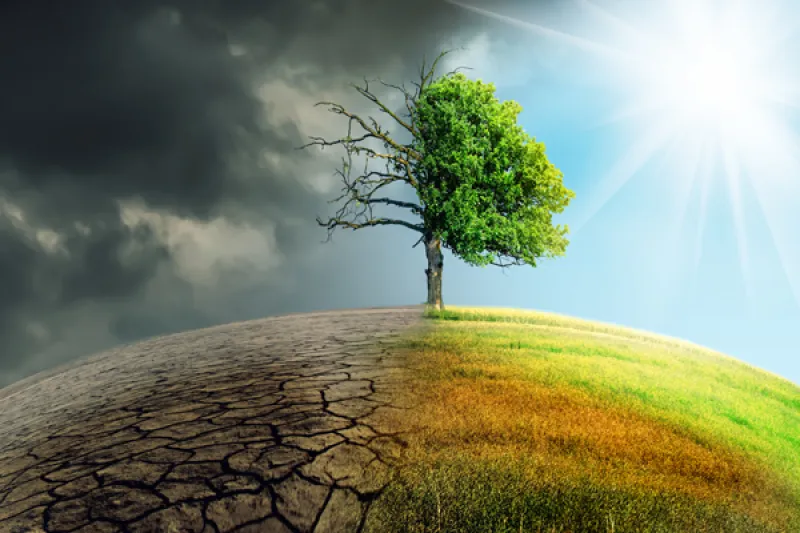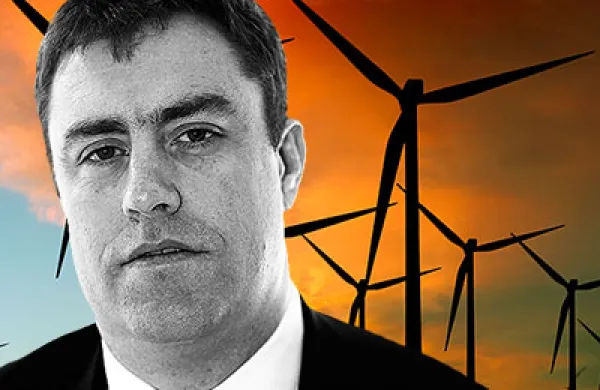Recently, a panel of specialists gathered at Schroders to discuss why climate change is an increasingly important topic for investors. The panel consisted of:
- Andy Howard, Head of Sustainable Research, Schroders
- Jillian Reid, Principal, Responsible Investment, Mercer
- Thomas Fabricius, Senior ESG and Equity Analyst, Danske Bank
- Simon Webber, Fund Manager, Schroders
A future issue has become a “now” issue
Andy Howard, Head of Sustainable Research, Schroders:
“Climate change is not a new issue; the science behind it and solutions to it really haven't changed that much over the last 10 years. But what's changing now is that we're beginning to see some of those points start to shift from being potential future questions to things that are really beginning to change.
“Whether it’s the regulation we’ve seen on diesel cars or on carbon pricing, or the dramatically-improved economics of clean energy, we're at a very interesting point for climate change and it’s clear it will be a critical issue going forward.”
Has a 4°C rise in temperature been avoided?
Jillian Reid, Principal, Responsible Investment, Mercer:
“We’ve come a long way since we at Mercer published our report “Investing in a time of climate change” in June 2015.
“We're now in a post-Paris Agreement environment, and it’s now looking very possible that a rise of 4 degrees Celsius will be avoided. We’re more likely to be able to stay below a 3 degree rise. In our original study we debated whether a 2 degree scenario should even be included, whereas now there is optimism that it’s possible.
“The conversation has certainly shifted. I almost never have to have that conversation about whether you believe in climate change anymore, but I think there is still an underestimation of the physical risks.”
Andy Howard, Head of Sustainable Research, Schroders:
“When you look at all the different things going on – whether that’s clean energy investment, oil and gas production, politicians’ statements, or the price of carbon – they can all paint very different pictures. So we’ve built the Schroders Climate Progress Dashboard, to try to make sense of this very complex situation.”
“By putting all of these factors together in one place we get a sense of the way the world is heading. It's currently not a particularly optimistic picture. The outlook is still closer to a rise of four degrees than two degrees, but it is starting to move down towards the two-degree mark.
“So, we think our dashboard is telling us there is still a long way to go. We're moving in the right direction incrementally. But there is a big gap between the level of change and disruption that we're seeing at the moment, and the level that we will need to re-engineer the global economy effectively from fossil fuels, which currently provide 80% of our power, to a more renewable and sustainable form of economic growth.”
What does all this mean for active fund managers?
Simon Webber, Fund Manager, Schroders:
“As an active investor, this whole issue and area is incredibly interesting and powerful, because the markets are very good at assimilating short-term information and very bad at long timeframes and discontinuities.
“If we’re going to get to the middle of this century with a 70% to 90% cut in greenhouse gas emissions, it is a complete transformation in the architecture of our energy industry, as well as automotive transportation, agriculture, heavy industry and chemicals and numerous other sectors.
“As investors we need to be thinking through how these industries may change in structure: which companies are positioned for that, which are not.
"Some companies will just focus on maximising their short-term profits. They won’t think about investing for five to ten years down the line, whether that’s so they have a license to operate, or whether it’s for technology that their customers are going to want. These short-sighted companies will see their business start to shrink.
“For active managers, there is a wealth of opportunity for us from being part of that solution. In my experience, having run a climate change-focused strategy for 10 years now, I am constantly amazed at how markets, investors, analysts, and company management teams struggle with the scope of the change that is likely coming. Therefore, there is a big role for investors and active managers to support those companies that can help us move in the right direction.”
You can view the full video of Schroders Live by clicking here.






